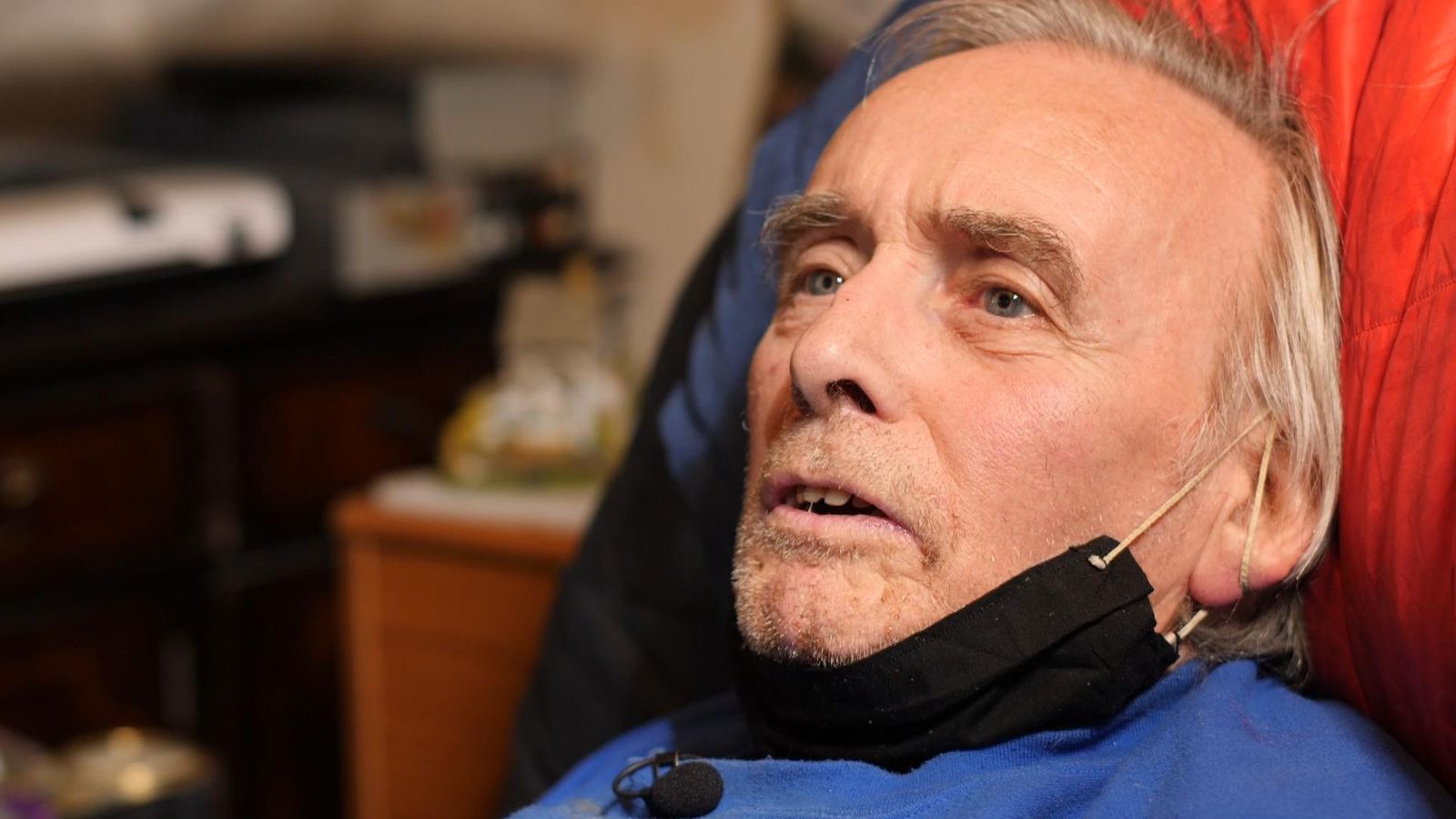Carlo Zamboni used to climb in the Scottish Highlands in the school holidays.
Today, crossing his small flat is a mission for the retired teacher. Nudging 70, he’s on the NHS waiting list for a hip operation and a diagnosis to confirm the Parkinson’s disease his hand tremors suggest.
We were speaking to him as NHS England said it was planning to free up space by treating up to 50,000 elderly and vulnerable patients in “virtual wards” at home.
Three months ago a fall put Carlo in hospital.
“I fell over in a graveyard, lost my balance for some reason,” he said. “I was suspected of possibly developing Parkinson’s disease nine months previously, so I was taken to hospital.”
After a week he was discharged into the reality of Britain’s overwhelmed health and care system; a care trap for those, like Carlo, not sick enough to be in hospital, but not quite poor enough to qualify for social care.
“I thought I wasn’t satisfactorily cured or knew what was wrong with me, because they couldn’t diagnose or do the test for Parkinson’s,” he said.
“You could feel the pressure to get people out of the hospital. I totally understand the crisis but it’s a crisis we could have planned for. And we didn’t plan for it.”
Read more:
How the NHS is using ‘virtual wards’ and smartphones to clear beds
Sir Rod Stewart calls Sky News about NHS crisis
Carlo is not alone. His brother pops in to help, he’s had support from charities and the local church food bank, and a district nurse visits once a week to check a catheter, the legacy of a collapsed bowel.
He does not qualify for social care support, however. Modest savings and a potential inheritance put him above the earnings threshold.
The local council has installed wall rails and a rope bannister at the top of the stairs to his flat, but the 400 yard walk to the chemist still takes an hour and leaves him exhausted.
How to deal with the needs of people like Carlo, living with multiple morbidities, is one of the fundamental challenges facing the health service in a crisis like no other.
One reason emergency services are overwhelmed is because a fifth of beds are occupied by people who could be at home if only they could be discharged safely. This winter has seen huge pressure to speed up that process.
With social care denuded by low pay and a staffing shortage, NHS England wants to scale up the use of technology, prescribing wearable devices to vulnerable people so they can be monitored remotely from home rather than a precious hospital bed.
Carlo says the “hospital at home” plan might help. “It’s a possibility worth exploring and experimenting with, but there’s no replacement for real people,” he told us.
What he really wants, though, is the government to honour the NHS commitment.
“I expect the NHS to remain true to its principles and I expect people to have faith in the NHS.
“Our generation were promised cradle-to-grave care. And I hope that promise is upheld – for more generations.”






















